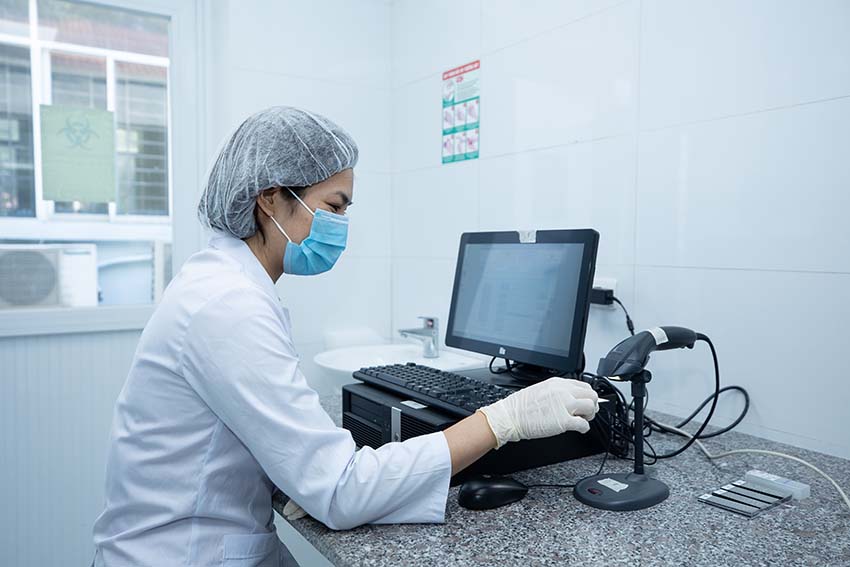
In Viet Nam, a lab technician reads a slide to identify bacteria species as part of FHI 360’s work for the Fleming Fund, which supports the country in collecting, analyzing, sharing and using high-quality data on antimicrobial resistance. Photo credit: Vu Ngoc Dung for FHI 360
Written by: Yasser Sanad, Technical Advisor, Emerging Infectious Diseases and Health Security, FHI 360 and Thu Trang Dao, Project Lead, Viet Nam Fleming Fund Country Grant, FHI 360
Antibiotics are the first line of defense in protecting humans and animals against bacteria and other microbes. Microbes, like humans, want to survive. They can do that by mutating to adapt to their changing environment, unfavorable conditions and any threats they encounter — threats such as antibiotics.
Antimicrobial resistance occurs when an antibiotic no longer works against a microbe because the microbe has mutated, and its genes help it to combat or resist the antibiotic. When microbes do this, they become even more dangerous to humans and animals, who rely on antibiotics to cure infections.
Scientists have warned about the consequences of antimicrobial resistance for decades. Now, worsening climate change is making antimicrobial resistance more persistent and widespread.
